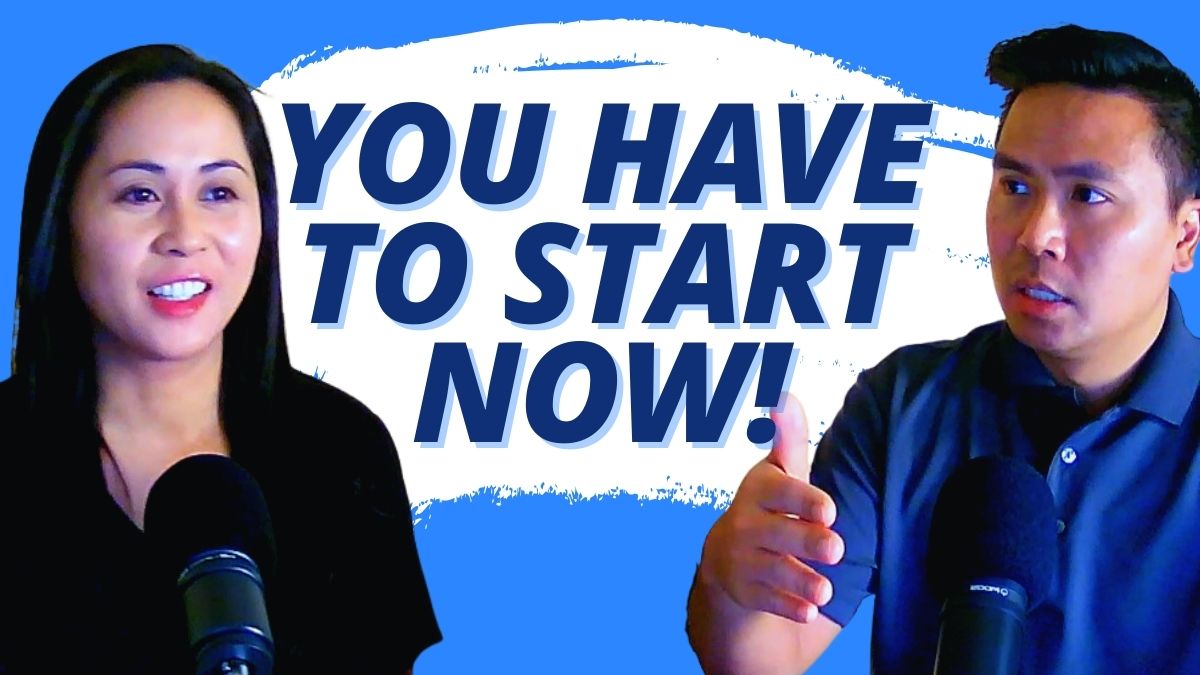8 Reasons Your Credit Score Dropped Suddenly

Did your credit scores drop for no apparent reason? Use these wise tips to boost your scores quickly, so an unexpected credit score dip doesn’t hurt your finances.
What Affects Your Credit Score?
One of the biggest misconceptions about credit is that you only have one credit score, such as FICO. While FICO is a popular type of score, hundreds of different credit scoring models are used by mortgage lenders, credit card issuers, insurers, and merchants. There are even multiple types and versions of FICO scores.
Each scoring model uses a complicated algorithm to evaluate you based on your credit reports’ information at the nationwide credit bureaus: Equifax, Experian, and TransUnion. The higher your score, the less risky you appear to potential creditors and merchants.
Here are the ranges for some popular credit scores:
- FICO Mortgage Score: 300 to 850
- FICO Auto Score: 250 to 900
- FICO Bankcard Score: 250 to 900
- VantageScore: 501 to 990
- TransUnion: 300 to 850
In addition to having different score ranges, each scoring model emphasizes different factors. For instance, having a missed payment on an auto loan might be weighted more heavily when factored into an auto-scoring model.
The exact formula that a credit scoring company uses is kept confidential. However, FICO says they use the following factors and weights as a baseline:
- Payment history (35%) – such as late payments, accounts in collections, and bankruptcies affects your score the most. Making payments on time is a critical factor for maintaining good credit.
- Amounts owed (30%) – are also known as credit utilization, which is the amount of debt you have compared to your available credit. Using a smaller percentage of your available credit boosts your score.
- Age of credit history (15%) – is how long you’ve had credit accounts open. Having older accounts improves your score.
- New credit inquiries (10%) – are applications for new credit accounts, which can temporarily lower your score.
- Mix of credit types (10%) – is the variety of credit accounts in your name, such as credit cards, auto loans, and mortgages. Having a mix of credit types helps improve your score.
Additionally, the data used by a credit model varies depending on where it comes from. The credit bureaus may have slightly different information about you. That’s because creditors may only report your payment information to one or two of them. That means a credit score depends on which scoring model and credit bureau are used.
Since there’s so much variation in credit scores, making an apples-to-apples comparison and looking for trends is what’s most valuable. Your actual score isn’t as important as making sure your FICO or VantageScore moves up or holding steady over time.
8 Reasons Your Credit Score Dropped Suddenly
- You’ve become the victim of identity theft.
- You have an error in your credit reports.
- You unintentionally missed a payment due date.
- Your credit utilization increased.
- You have no credit utilization.
- Your average age of credit decreased.
- Your credit mix has changed.
- You made a large purchase on credit.
While it’s not usual for credit scores to fluctuate a few points from month to month, a larger drop of 20 points or more may indicate a problem that should be investigated right away.
Since Michelle doesn’t have any late payments or changes with her accounts, why has her credit score dropped 38 points? We’ll review eight reasons for a sudden score drop and what you and Michelle should do about it.
1. You’ve become the victim of identity theft.
This is by far the worst and most serious reason you could see your credit scores plummet. If a thief steals your personal information and takes out a loan or gets a credit card in your name, he or she isn’t likely to pay the bill.
Since payment history is a top factor in how credit scores are calculated, even one missed payment will cause your scores to drop instantly.
Since payment history is a top factor in how credit scores are calculated, even one missed payment will cause your scores to drop instantly. Review your credit reports for suspicious activity such as accounts that aren’t yours and higher-than-normal balances on existing accounts. If nothing is amiss, your score drop must be due to something else.
But if you have become the victim of identity theft, act as quickly as possible to minimize the damage. Contact any creditor listed on your credit report that you don’t recognize and ask to speak with their fraud department. Then place a fraud alert on your credit reports with the credit bureaus so no new accounts can be opened in your name.
File disputes with each of the credit bureaus where the fraudulent information appears. Also, file a police report, so you have proof that a crime was committed against you.
A cybercriminal can use your personal information to make purchases on your existing credit card accounts or even drain your checking or savings. So, change the passwords on all of your online financial accounts to help prevent future theft.
Remember that the best way to protect your credit and identity is to check your credit reports for unauthorized activity regularly. It’s easier than ever to stay on top of your credit by signing up for free access and alerts at sites such as Credit Karma and Credit Sesame.
2. You have an error in your credit reports.
As you review your credit reports looking for evidence of fraud, you may find other errors that are to blame for a sudden drop in your credit scores. For instance, inaccurate late payments, account balances, and available credit limits may be dragging down your scores without you knowing it.
File a dispute with each of the credit bureaus that shows any inaccurate information. Then contact the creditor who reported the error and correct the data with the credit bureaus. Be prepared to send the documentation that helps you prove a creditor’s error.
It may take a month or two before an error gets researched and updated. So keep checking your credit reports to make sure the problem gets resolved, and your scores rise.
3. You unintentionally missed a payment due date.
As I previously mentioned, how you pay bills is the single most important factor that credit scoring models use to calculate your scores. I call payment history “the king of credit” because it makes up the largest percentage of a typical credit score.
When you have a record of paying accounts on time, it shows that you’ve been responsible with money. It suggests that your good behavior will continue, and you won’t default on debt in the future.
Likewise, having late payments or accounts in collections are serious red flags that you haven’t been dependable and that you may not repay debts with regularity or at all. The consequences are stiff. Even making just one late payment can drastically reduce your scores, especially if you have good or excellent credit.
But what if you did pay on time? If you check your credit reports and are surprised to see a late payment, act quickly to settle your account. Maybe your payment got lost or damaged in the mail, or there was a glitch with your online bill pay service.
If you miss a payment due date but quickly get caught up, your mistake won’t show up on your credit reports.
If you can prove to a creditor that you did pay on time, they may be willing to cut you some slack, especially if you’ve been a good customer. Pay your bill as quickly as possible and request that the late payment with the credit bureaus be reversed.
Also, note that a late payment can’t be reported to the nationwide credit bureaus until you’re 30 days past due. So, if you miss a payment due date but quickly get caught up, your mistake won’t show up on your credit reports.
4. Your credit utilization increased.
I mentioned that the second most important credit score factor is how much debt you owe and your credit utilization. Using a smaller percentage of your available credit on revolving accounts (such as credit cards and lines of credit) boosts your scores. And the opposite is true when you use more of your available credit. That causes your utilization ratio to spike and your credit scores to drop quickly.
What may surprise you about credit utilization is that it can increase even if you haven’t maxed out your credit cards. For instance, if your card issuer cuts your available credit limit, your utilization ratio would go up. You’d have the same outstanding balance compared to a smaller credit line, making you appear less favorable to credit scoring models.
Card issuers set your spending limit when you first open an account, but they can increase or decrease it according to the terms of your agreement. If an issuer sees signs of risk, such as large cash advances or a card that hasn’t been used for an extended period, they can take action to protect themselves by reducing your credit limit or closing your account altogether.
If you’ve had a credit line cut or canceled, review your credit report for any inaccurate information that might have been a concern to your creditor. Then dispute any errors on your credit reports and contact the creditor to discuss raising your credit limit.
5. You have no credit utilization.
While having low credit utilization on revolving accounts is one of the best ways to build and maintain great credit, don’t go overboard by going down to zero utilization. You must have credit accounts and use them responsibly to have enough data to generate credit scores.
It’s unnecessary to carry debt from month to month or pay any interest to build credit. You must have open accounts that show some activity, such as making small charges from time to time that you pay off in full. This smart strategy doesn’t cost anything and allows you to build great credit over time.
6. Your average age of credit decreased.
I mentioned that the age of your credit accounts is a relatively small factor in your credit scores. Credit models figure the total months that all of your accounts have been open and divide by the number of accounts you have.
Having a long credit history helps lenders know if you’re likely to be financially responsible in the future and are a good credit risk. So, the longer you’ve had credit accounts open in your name, the better.
Once a credit account is closed or paid off, your average age of accounts begins to decrease. If you close an ancient account (such as a credit card that’s been in your name for decades), it has a more negative effect on your credit scores than if you closed a younger account.
When you open a new account, you immediately reduce the average age of your accounts, which may cause a drop in your scores. To ensure your average age of credit accounts grows over time, only open new accounts when it’s necessary. And make sure to keep your oldest accounts open and active.
Many people mistakenly believe that they should immediately close a credit card after paying it off. A better option is to leave a paid-off card open and use it once a while for a small charge that you pay off in full. That allows you to leverage its positive payment history, longevity, and available credit limit to raise your credit scores.
7. Your credit mix has changed.
While it’s not the most important factor in how your credit scores are calculated, having a mix of different types of accounts helps increase your credit scores. For instance, having revolving accounts, such as a credit card or line of credit, in addition to installment accounts, such as a car loan or mortgage, shows lenders that you can handle different types of credit responsibly.
So, if you just paid off the only installment loan you have, your credit mix looks less diverse to lenders, and there’s not much you can do about that. Unless you need to finance a purchase, like a home or a car, I don’t recommend taking a loan just for the sake of boosting your credit.
If you maintain good habits, like paying credit cards and utility bills on time and maintaining low utilization rates, your credit scores will naturally go up over time. As is often the case, you’ll get the best scores by using credit — as long as you use it wisely.
8. You made a large purchase on credit.
Making a large credit card charge is one of the most common reasons for an unexpected credit score drop. You might think that it won’t matter, as long as you pay your credit card bill in full by your statement due date.
The problem is, your credit card company may report your balance to the credit bureaus before your payment was received. In other words, paying off your entire credit card balance every month generally does not improve your utilization ratio.
The bottom line is that if you use more of your available credit, it’s a mathematical signal that you might make late payments in the future and are a higher credit risk.
Follow these tips to reduce your utilization ratio and boost your scores:
- Never charge more than 20% of your available credit limit on any one card or a total of all your credit cards.
- Request a credit limit increase on your credit cards.
- Open an additional credit card and spread out charges on multiple cards instead of maxing out one card.
- Make multiple payments during the month to increase the likelihood that a lower balance gets reported to the credit bureaus.
Now that you understand eight common reasons why your credit scores can dive let’s get back to Michelle’s situation. She said that her credit reports looked good within the past six months. If she hasn’t reviewed them within the past month, she should. But let’s assume that she isn’t the victim of identity theft, doesn’t have any errors on her reports, and didn’t make a late payment.
Michelle mentioned having no debt, but she didn’t say if she has credit card accounts. It’s possible that her credit limits could have dropped or that she’s being penalized for having no utilization. If that’s the case, she could request a credit limit increase or start using a credit card to continue building a positive payment history.
If Michelle had credit accounts in the past that are now paid off, it’s possible that her average age of credit has decreased or that she’s being dinged for not having any diversity in her credit profile.
If she does have a credit card, she may have used it to purchase with the intent to pay it off right away. As I explained, if the balance was reported to the credit bureaus, it could be the reason for her score drop. But if she follows my recommendation to use a credit card strategically, her scores should rebound within the next few months.






